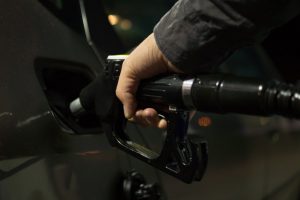How to Be as Fuel Efficient as Possible
Fuel economy plays a significant role in the overall cost of maintaining your car. Almost all vehicle owners will exhaust every means to be as fuel-efficient as possible. Aside from saving money from gas, being fuel-efficient also increases our road safety and your car’s performance. Most importantly, improving the fuel efficiency of your vehicle will also reduce visits to auto shops.
So to get you started, here are some of the fuel-efficient tips that you should follow:
Keep it smooth and steady
Sudden dips and bursts in your speed eat up a lot of fuel. A speed variation of around 5 mph every 15 seconds will consume around 20% more fuel. So the next time that you go for a long ride, try to keep it smooth and steady. Some automatic cars have a cruise mode, which locks the speed at a stable level, preventing sudden changes that will burn more fuel.
Drive, don’t drag
We just love putting gear on our car, from bike racks to storage units. However, these extra units also mess up the aerodynamics of your vehicle if used on a day-to-day basis. Since there are more rough and uneven surfaces on the car’s exterior, your vehicle will have to exert more effort to accelerate. So if you’re not going for a road trip, you might as well remove these accessories.
Avoid idling
Many of us are guilty of this habit, especially during the chilly winter season. If you are to stop for more than 60 seconds, it’s best to turn off your engine to save fuel, except if you’re caught in traffic. Aside from eating a lot of fuel, idling also puts stress on your engine. Remember that you’re wasting over one cup of fuel for every 10 minutes that you’re idling your car. You’re also increasing the rate at which you’ll need to visit a repair shop.
Remove unnecessary weight
Remove the excess baggage from your vehicle if you don’t need it. Sports equipment, punching bags, and other heavy items will mean that you consume more fuel while driving. If you have a mid-size car, your fuel consumption increases by 1% for every extra 55lbs of weight inside your vehicle.
Don’t over-work your air conditioner
If you’re driving, shift to recirculation mode once the interior is cool. You can also open the windows if it’s not too hot or too polluted outside. Running the air conditioner continuously can increase fuel consumption by as much as 20%. If possible, use the flow-through ventilation system to reduce the fuel use of your AC. Or just open a window.
Track your fuel consumption
Above all, you should keep an eye on your car’s fuel consumption. If you notice a sudden surge in consumption, you should assess what you’re doing wrong. If it persists, a visit to an auto body repair shop will help diagnose and fix the issue. In doing so, you can keep your mpg as high as possible.

